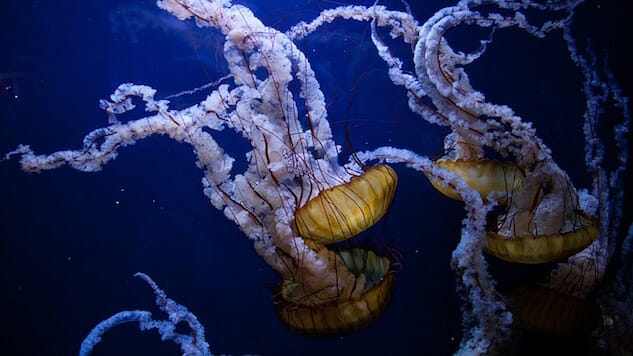
Forget what you thought you knew about treating jellyfish stings.
Researchers at the University of Hawaii at Manoa reviewed common jellyfish sting solutions and published their findings in the journal Toxins.
Typical treatments include rinsing with water, scraping away tentacles and covering with vinegar.
Jellyfish nematocysts release venom when under pressure; therefore, attempting to scrape them off further agitates the situation and encourages for poison to enter the body. Trying to remove tentacles after being stung by certain types of jellyfish could even be fatal.
Vinegar was proven to be the most effective home remedy for jellyfish stings because it causes the nematocysts to become inactive and unable to release more venom. Make sure to use the most-highly concentrated formula available and remove the stingers with tweezers.
According to the research, pouring alcohol on the sting can cause the nematocysts to become reactive and release more venom. If a beachside beer is the only thing handy, resist the urge to douse the sting in it.
Pee is also not the way to go, despite what you may have seen in movies and television sitcoms. Although urea is found in urine and specifically formulated jellyfish sting treatments, this substance is typically too diluted in human urine to be an effective remedy. Pee can also contain enough salt to activate the nematocysts into releasing more venom. Avoid this solution at all costs.
Photo courtesy of Unsplash, CC0
Chamberlain Smith is a freelance writer based in Athens, Georgia.